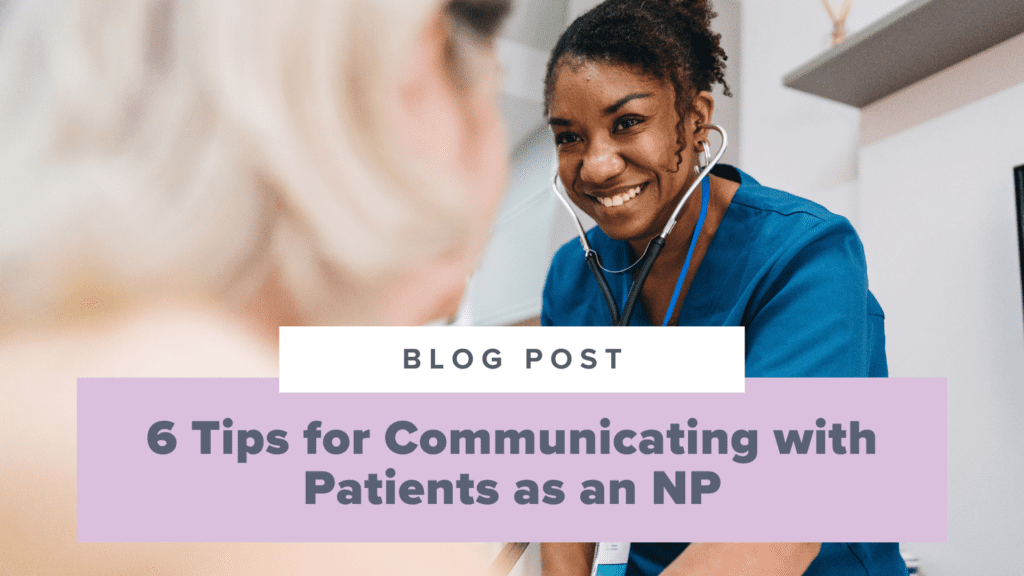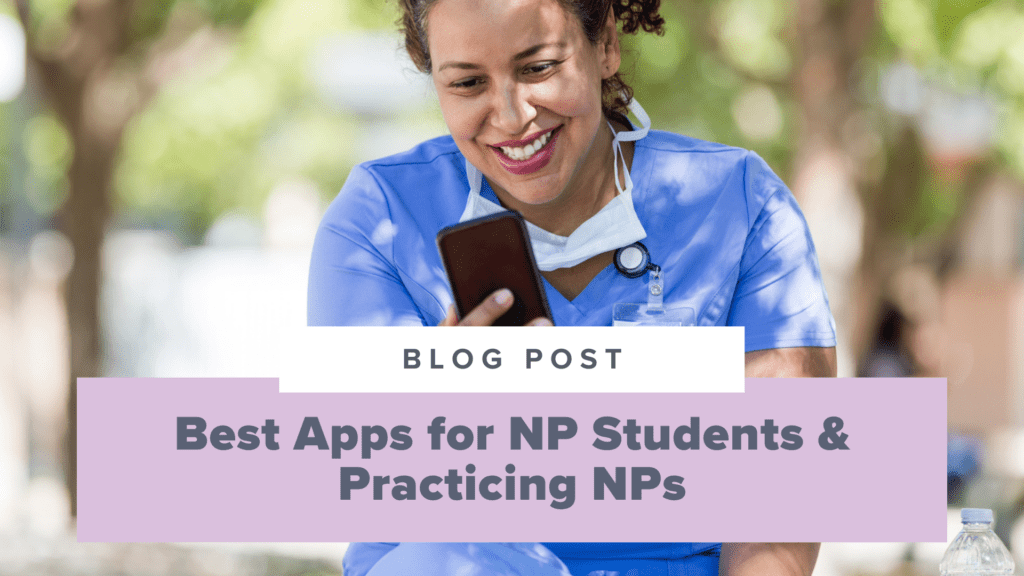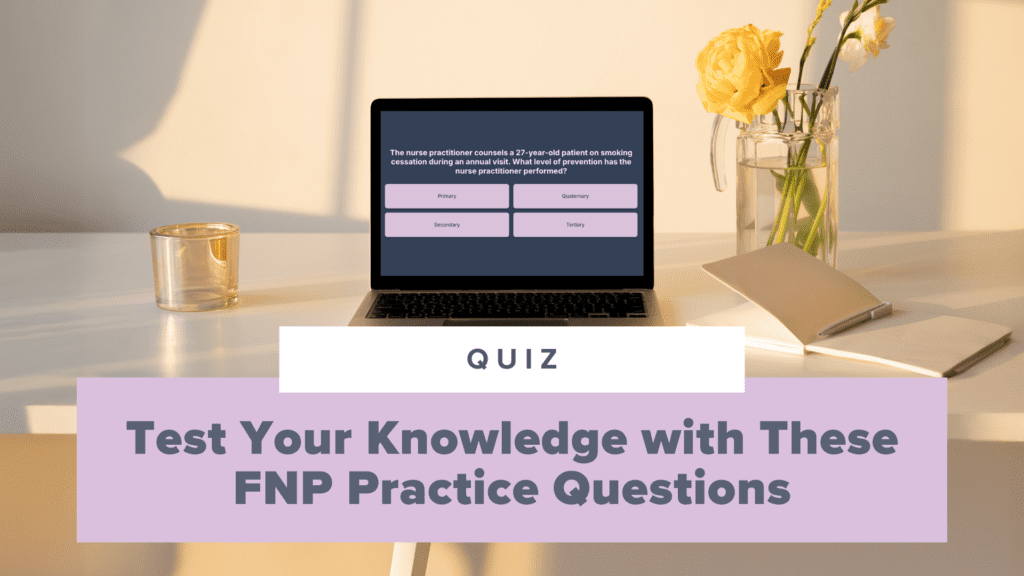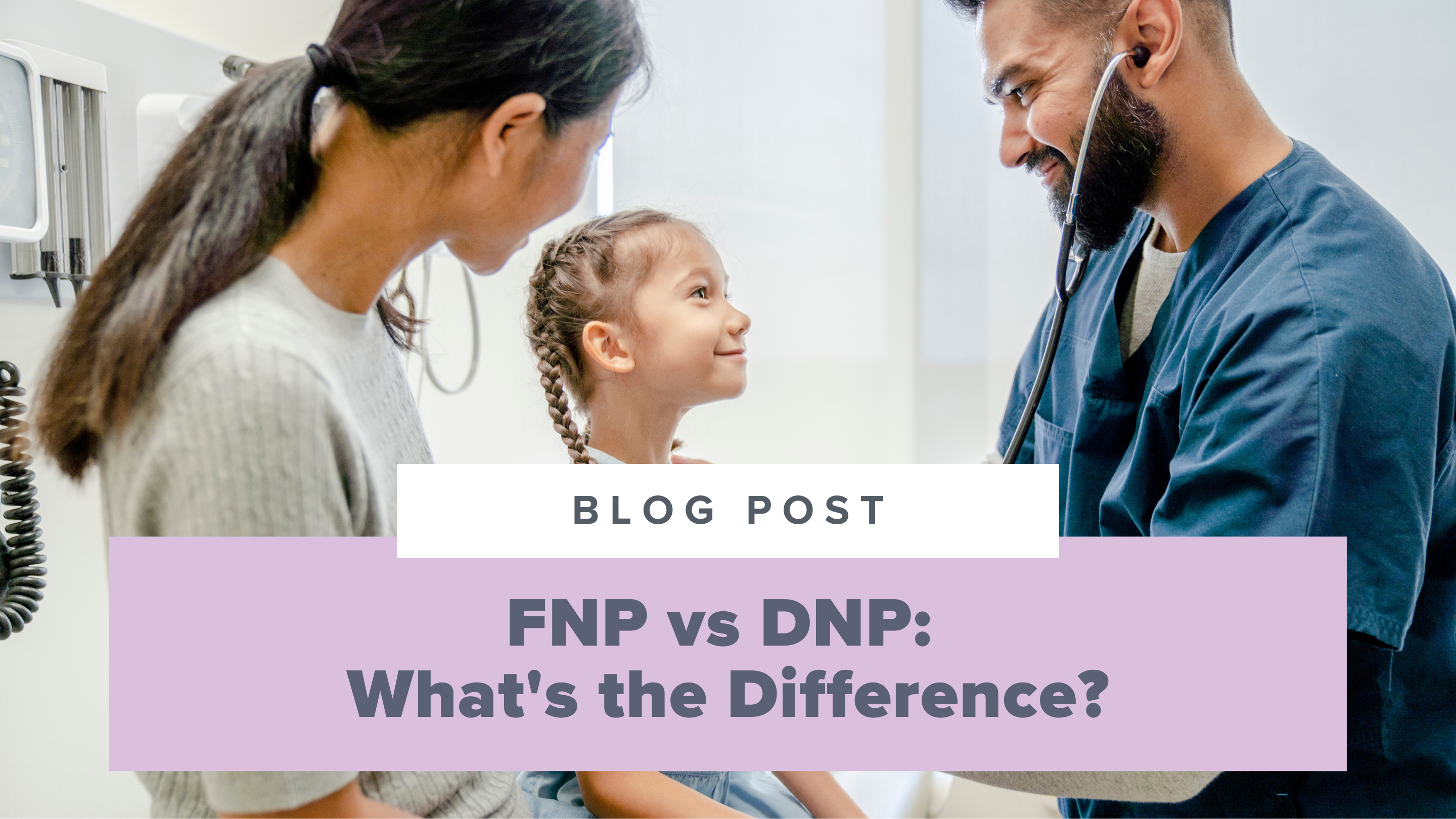
Nursing and medicine are full of acronyms and abbreviations. If you’ve been a nurse for a while, I bet you have no problem reading this sentence: 64 yo pt with a hx of HTN, DM, CHF, and GERD presents with SOB and chest pain. (It’s like our own secret code, right? 🔎)
But, when it comes to the abbreviations after your own name, things can be a little trickier. If you’re thinking about going back to school and advancing your career, it can be overwhelming with all the different options! In this post, we’ll break down the differences between FNP (Family Nurse Practitioner) and DNP (Doctor of Nursing Practice).
The TL;DR: One is a specialization, one is a degree!
Here’s the bottom line on the difference between FNP vs DNP: FNP is a specialization, while a DNP is a level of education.
What is an FNP?
As a nurse practitioner, you’ll have a specialty area of practice. FNP is the most common, but there are lots of other NP specialties like adult-gerontology acute care (AGAC-NP), women’s health (WHNP), and pediatrics (PNP) just to name a few!
To become a Family Nurse Practitioner, the minimal degree requirement is a Master of Science in Nursing. If you already have a master’s degree, you might qualify to earn your FNP specialization through a post-master’s certificate program.
You can also become an FNP through BSN-DNP programs, too! After you complete your FNP program, you will sit for your board certification exam, where you will then become a board-certified Family Nurse Practitioner once you pass!
What is a DNP?
So then, what is a DNP? The Doctor of Nursing Practice is a type of terminal degree for nurses. DNPs can hold advanced practice roles such as a nurse practitioner or nurse midwife, or they can have roles such as nurse executives or nurse educators.
The goal of a DNP-prepared nurse is to bridge the gap between research and clinical practice to promote systems leadership and quality improvements. Having a DNP degree does not change your scope of practice as a nurse practitioner! Your scope of practice is based upon state licensure requirements and your area of clinical specialization.
In Summary…
To recap: FNP relates to a specialty area of clinical practice. You must complete either a master’s, post-master’s certificate, or a DNP program with a specialty focus of FNP. Then, once you graduate, you will sit for a national FNP board certification exam.
DNP is a degree. There are three main types of terminal degrees for nurses: DNP, PhD, and EdD.
– DNP focuses on the application of research to clinical practice to make improvements in patient care, healthcare systems, and nursing education.
– PhD-prepared nurses focus heavily on conducting research and can work as a researcher or nurse educator.
– EdD-prepared nurses have advanced knowledge of nursing education and curriculum design and work in different roles within nursing education.
What can an FNP vs DNP do?
FNPs can care for patients across the lifespan, from newborn infants to older adults, in a primary care setting. However, the opportunities for FNPs don’t end in a family practice clinic. You can work in other outpatient settings, like in a long-term facility, conduct home health visits, and even work in other specialty clinics like cardiology or dermatology. There are so many opportunities!
As advanced practice registered nurses (APRNs), FNPs can conduct advanced physical assessments, order diagnostic tests, diagnose conditions, and prescribe medications and other treatments. FNPs also educate patients to care for themselves and help supervise staff and other administrative duties.
As a DNP, it really depends on what the specialization area is. If you have a DNP with an FNP clinical specialization, you might work in clinic administration or as a faculty member. If you have a DNP with a nursing administration background, you might work in a leadership position for a healthcare organization. Having a DNP degree can really open up more opportunities for career advancement and give you the tools and knowledge to make positive change on a greater scale!
What is the path for each one?
Kind of going back to the first point, let’s talk about how you can become an FNP or earn a DNP degree.
Becoming an FNP
If you know that you want FNP as your specialization, then the minimum requirement is a master’s degree. There are so many options, including in-person, online, and hybrid programs, so you can find the school that best meets your needs.
All accredited FNP programs allow you to sit for board certification examination after graduation through either the American Association of Nurse Practitioners (AANP) or the American Nurses Credentialing Center (ANCC).
Earning a DNP
Since DNP is a type of terminal degree, there are a few paths to get there. If you have a bachelor’s degree in nursing, you can complete a BSN-DNP program. Those programs will require you to choose a specialization in either an advanced practice role (nurse practitioner, nurse anesthetist, nurse midwife, or clinical nurse specialist) or a non-clinical role (like nursing education or nursing administration).
For example, you can complete a BSN-DNP program and choose a specialization as an FNP! If you already have a master’s degree in nursing, you can enter into a DNP program from there. Some MSN-DNP programs also have non-clinical specializations that you can choose from including nursing education, leadership, or healthcare administration.
Remember, a DNP is a terminal degree. That means you can expect to learn about leadership, research, and healthcare policy. As a doctoral degree, there will be a lot of writing papers, participating in discussions, and conducting research. It is rigorous work, but it’s well worth it for the opportunities it will open up for you, and the changes you can make! After earning your DNP degree, there are no additional licensing or certification requirements needed.
Final Thoughts
If you’re looking for more information about the differences between FNP vs DNP, here’s a helpful post from the American Nurses Association that takes a deeper dive into the DNP degree, as well as a lot of other links for different paths in nursing.
Best of luck—everyone here at SMNP Reviews is rooting for you! 💜
Search the Blog
Join our Facebook Group!
Get FREE support and encouragement from thousands of FNP/AGPCNP students and our NP Support team.
Learn More3 Study Hacks to Conquer Your NP Exam!
Download these tips that have helped thousands of students pass their NP board exams.
Download NowInstitutional Partnerships
Are you a faculty member and would like to bring Sarah Michelle’s resources to your school? Email us at nursinggroups@blueprintprep.com for special institutional pricing or click on the link below to learn more.
Learn MoreGroup Discounts
Are you a student and have 10 or more classmates interested in purchasing Sarah Michelle’s courses? Email us at nursinggroups@blueprintprep.com for special pricing.
